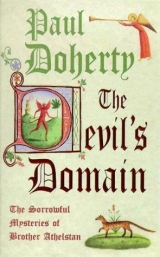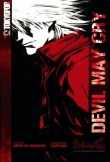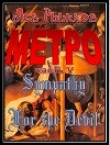
Текст книги "The Devil's domain"
Автор книги: Paul Doherty
Жанр:
Исторические детективы
сообщить о нарушении
Текущая страница: 5 (всего у книги 19 страниц)
CHAPTER 5
Gresnay’s words created a pool of silence.
‘I am sorry?’ Athelstan stammered.
‘Don’t you understand your own tongue, Brother?’ Vamier snapped. He tapped Gresnay on the arm. ‘Jean has spoken the truth.’
‘What is the truth?’ Sir John asked.
‘We are officers of the King of France,’ Vamier declared. ‘We are prisoners here but we fear for our lives. Sir Walter’s hatred for our nation is well known.’
‘And good reason for it!’ Sir Walter burst out.
‘Hush now!’ Athelstan held his hands up.
‘But it’s true,’ Vamier continued. ‘Why!’ He caught the look of puzzlement in Athelstan’s eyes. ‘Hasn’t he told you? It was the St Denis which attacked Winchelsea when his wife and sons died.’ The Frenchman lifted his shoulders and spread his hands placatingly. ‘Of course, it was a different crew, different men. No man here would agree to the wanton slaying of a woman and her sons. But, Sir John, you have fought in France?’
Sir John nodded; Athelstan recalled himself and his brother Francis entering a French town which had been sacked by English archers. Women lay dead in the streets, their throats cut, their dresses pushed back and, beside them, young children. The glory of war had died at such sights. Athelstan glanced at Sir Walter. The knight’s face had grown pale, his lips were moving soundlessly, beads of sweat ran down his cheeks.
‘I’m no assassin,’ he said hoarsely. ‘Aye, I hate you. If I had my way, I’d see you all hang on the gallows for the pirates you are!’
A fight would have broken out but Sir John banged the table with his fists.
‘When did you take this oath?’ he asked. ‘What did it signify?’
‘When we came here,’ Routier said, ‘and we realised we were in the charge of Sir Walter.’ He gestured at the platter. ‘Sir Walter himself will tell you: we only eat from the same dish and drink from the same jug.’
‘And last night?’ Athelstan asked.
‘The same. We dined here on what was supposed to be some fish, drank the same putrid wine and ate the same mouldy bread.’
His companions lowered their heads to hide their amusement. Sir Walter would have retorted angrily but Athelstan caught his wrist.
‘They are only baiting you,’ he whispered.
‘If we met him on the field of battle,’ Gresnay declared, ‘we’d do more than that, Brother!’
‘One day you might!’ Sir Walter shouted, his lips flecked with spittle.
‘But there’s another reason, isn’t there?’ Athelstan asked.
The change in the French knights was remarkable. They dropped their lazy, insulting demeanour. Vamier shuffled back on his chair, Routier pulled across the wine jug and refilled his cup.
‘Come! Come!’ Athelstan insisted. ‘You are hardly a band of brothers, are you? After all, once you were cocks of the walk, masters of the Narrow Seas, and then one day your two ships are trapped between English men-of-war and the port of Calais.’
Taken in a fair fight!’ Routier protested. ‘Fortune’s fickle wheel and fortune is blind. Perhaps next time we meet, Sir Maurice will know what it’s like to be taken prisoner?’
‘Oh, answer the question!’ Sir John snapped. ‘Two French ships taken in one day! That smacks of treachery! You were expecting fat-bellied cargo ships full of wine from Bordeaux. Aye. The best claret, rich and red, the only good thing that comes out of France.’ The coroner grinned. ‘That’s not true, but we can sit here all day like little boys in a street insulting each other.’
‘We were betrayed.’ Vamier rapped the table-top with his fingers.
‘And the traitor could be among you now?’ Athelstan asked.
‘Possibly.’
‘It could have been anyone.’ Gresnay waved his hands.
Sir John smiled beatifically across at him.
‘Young man, I’m in London yet I know that, in French ports, men-of-war are being prepared. I know that. The seagulls know that, the rats on board ship know that.’ His face straightened. ‘But how many men know what’s contained in sealed orders? Come on, how many?’ He pointed at Routier. ‘I ask you a question, sir, how many people on the St Sulpice and the St Denis knew where you were to sail, when, and what your destination was?’
‘There were six of us,’ Routier admitted. ‘We four, Serriem and Dumanier. He was killed in the fight.’
‘So, if there was a traitor,’ Sir John continued sweetly, ‘it could have been Dumanier, although the Judas kind usually ensure that they are safe, it might have been Serriem or, gentlemen, one of you.’
The consequent silence was abruptly shattered by two of the great house cats which had trapped a rat further down the hall and were busy in its noisy destruction. Sir Walter drew his sword and went down. One of the cats, the rat dangling from his mouth, hurried off hotly pursued by his companion.
‘Death is all around us,’ Maneil observed.
‘And it may strike again,’ Athelstan replied. ‘We are not here, sirs, to play a part and walk away. The Regent himself has intervened. If there is a traitor among you, he may want you all dead. Or, there again, you may know who the traitor is? Was it Serriem? Did you carry out lawful execution of him? After all, you have just assured us that none of you eat or drink anything one of your companions does not partake of. Nevertheless, Serriem was poisoned.’
‘Are you saying we forced something between Serriem’s lips?’ Maneil asked.
‘It’s possible.’
‘But we dined together last night, Sir Walter’s guards all about us. We talked, we played chess, there was no feeling of resentment. Serriem was a good companion, a born sailor. If there is a traitor it certainly wasn’t him.’
Athelstan took out his ink horn, a sharpened quill and a square of parchment. He used a pumice stone to ensure it was smooth then he quickly wrote down their names and a short description and what he had learned. When he glanced up, the coroner was now sitting slouched in his chair, head back, mouth open, sleeping peacefully. Athelstan could tell the French were not impressed.
‘Sir John does not regard Serriem’s death as important,’ Gresnay quipped.
‘My lord coroner,’ Athelstan replied, putting his quill down, ‘is a hard working, very tired man who should be back in his own court, not listening to a pack of lies.’
‘Lies!’ Routier yelled.
‘Yes, sir, lies! Someone is lying here.’
‘Then why not ask him?’ Routier pointed at Sir Walter. ‘Brother Athelstan, we have no poisons. Our noble gaoler has already searched our possessions.’
‘Is that true?’ Athelstan asked.
Sir Walter nodded. ‘I found nothing,’ he confirmed. ‘Nothing at all.’
‘What about the garden?’ Sir John opened his eyes, smacking his lips.
Routier gasped, open-mouthed. Athelstan hid his amusement. Sir John seemed to have the ability to sleep and listen at the same time.
‘What about the garden?’ The coroner rubbed his face. ‘There are plants growing there.’
‘Why not test us?’ Routier retorted. ‘We are sailors, my lord coroner, not gardeners. I speak for the rest: unless someone told us to the contrary, I wouldn’t know one herb from another.’
This drew murmurs of agreement from his companions. Athelstan stared down at the square of parchment. Nothing, he thought, we are learning nothing here.
‘One last question. Serriem was with you all the time?’
‘I’ve told you that,’ Routier replied wearily. ‘We supped here. We walked in the garden. We played chess, dice, other games. Nobody saw Guillaum drink or eat anything after he had left the table.’
‘You are sure of that?’
‘When the guards came to take us to our chambers, Serriem was alive and well. He took his wine cup up but it contained nothing we, too, hadn’t drunk.’
A short while later Sir John, Sir Maurice and Athelstan left Hawkmere Manor.
‘I’m glad we are out of there!’ Sir John exclaimed as soon as they were out of earshot. ‘A godforsaken place!’ He paused for a drink from his wineskin.
‘What do you make of it?’ Sir Maurice asked.
Athelstan stared back at the high, grey curtain wall and repressed a shiver. Many of the deaths he and the coroner had to deal with were the results of accidents or sudden fights. Now and again, as today, they would enter a different world, what Athelstan privately called the ‘Devil’s Domain’. Hawkmere was one of these. A place seething with malice, resentment, lies and bloody-handed murder.
‘I feel angry,’ he muttered then regretted his words.
‘What do you mean?’
‘Nothing.’
Athelstan waved his hand. He didn’t wait for the rest but left the pathway and walked across the wasteland. It dipped; at the bottom was a small mere or lake. The sun had begun to dry it up, the water receding, leaving a round, muddy circle where plants and under-growth died through lack of nourishment. A desolate place. Athelstan sat down under the cool shade of a tree. Above him a thrush sang its little heart out. Sir John came and stood over him.
‘What’s the matter, Brother?’
‘I don’t know, Sir John. It’s just a feeling, a premonition of danger.’
‘For yourself?’
Athelstan shook his head. ‘For all their effrontery, Sir John, those Frenchmen are frightened and so is Limbright.’
‘You mean none of them is the murderer?’
‘I’m not saying that. There may well be more deaths at Hawk-mere but, at this moment in time, there’s very little we can do.’
Athelstan watched a pedlar leading his donkey up the trackway. The fellow was dressed in leggings and boots and a woollen jerkin with the hood pulled over his head against the sun. He turned and waved at them. Athelstan sketched a blessing in his direction.
‘Now there goes a happy man,’ he said. ‘Very few possessions and never long in one place.’
‘What’s that got to do with Hawkmere?’
‘Those men shouldn’t be there. Sir John, how could Serriem have been murdered? Limbright knows the finger of suspicion points at him and those Frenchmen were wary of him from the start. They even took an oath to be careful what they ate or drank. We know Serriem touched nothing to create suspicion: there’s no mark on his body and his room was locked and secured.’
‘We didn’t ask them about that,’ Sir John remarked.
‘We’ll leave that for the time being. Though it’s inconceivable, Sir John, that someone forced themselves into Serriem’s chamber and made him drink poison.’
‘It could have been a trick. Someone pretending to be a friend.’
‘In which case, Serriem was very stupid for it must have been Limbright. From what I gather he keeps the keys of those chambers on his person.’
He looked over the coroner’s shoulder. Sir Maurice was crouched down, plucking at some flowers.
‘Ah, the lovelorn knight,’ Athelstan said. ‘But he’ll have to wait. Now, Sir John, if I wished to buy a poison, something out of the ordinary, where would I go in London?’
‘If you went to an apothecary or leech like Aspinall, those who have been granted a licence by the City Council, they would make an entry in their ledgers.’
‘So, an assassin wouldn’t go there?’
‘No, he or she wouldn’t. They’d go along to Whitechapel or even Southwark to those children of the night who deal in philtres and potions, magical powers, the crushed skin of toads or mushrooms plucked at midnight.’
‘And they are numerous?’
‘Well, to quote the Gospels, their name is Legion for they are many. Most of them are quacks, cunning men. They’d sell you a powder but it would be nothing more harmful than chalk. The real assassins are very few.’
Sir John closed his eyes and concentrated, sifting through names he knew, those men and women who lived in the shadow of the law, whose collars he would love to finger but never had the evidence.
‘Vulpina is the one. Well, that’s what she’s calling herself now. Years ago she was known as “Hotpot Meg”, a lecherous woman, a famous whore.’
‘What happened?’ Athelstan asked curiously.
‘Someone marked her face and slit her nose. No one knows the reason why. Anyway, “Hotpot Meg” became Vulpina, a dealer in magic potions. Queen of the Poisoners is our Vulpina. You could start with her. However, first, let’s deal with our lovelorn knight.’
They returned to the trackway and explained that they were going into the city.
‘And what about me?’ Sir Maurice spread his hands. ‘I don’t mean to sound plaintive.’
Athelstan grasped his hand. He felt sorry for the pain in this young man’s eyes.
‘Tell my Lord Regent that we have matters in hand. Don’t worry,’ Athelstan offered. ‘Love always wins through.’
The young knight seemed unconvinced but he thanked them and walked away.
‘A grand fellow,’ Sir John said, taking another swig from his wineskin. ‘Reminds me of myself in my youth, bold of eye, lean of body
…’
‘Yes, yes, Sir John. Oh, Sir Maurice!’ Athelstan called out.
The knight turned.
‘Who buys supplies for Hawkmere Manor?’
Sir Maurice looked down at the trackway, scuffing at it with the toe of his boot.
‘It’s one of my duties,’ he shouted back and, turning on his heel, walked away.
‘What on earth was that about?’ Sir John asked.
‘Just a thought, my lord coroner.’
‘But the physician said he had checked the foodstuffs!’
‘What puzzles me,’ Athelstan replied, ‘is that here we have five men who have taken every protection against poison. We are not too sure whether they are terrified of Limbright or frightened of the traitor in their midst. Now I don’t think the poison,’ he continued, ‘was collected from the manor garden. We are not even sure whether anything poisonous grows there. And, even if it does, such poisons have to be prepared. You don’t just pluck a little foxglove and give it to someone to eat. Now, the prisoners were searched, probably many times after their capture: a powder, poisons would have been noticed.’
‘So?’
‘So, Sir John, logic dictates that either the poison was brought into the manor and given to one of those Frenchmen to poison Serriem, and perhaps others, though God knows the reason why…’
‘Or,’ Sir John finished for him, ‘the poison was obtained by someone who can enter and leave that manor at will.’
‘Exactly! Which brings us to Limbright. Perhaps his daughter, fey though she be, our good and glorious physician Aspinall or, perhaps, even Sir Maurice.’
‘I don’t think Maltravers is a poisoner. He’s a soldier and a warrior.’
‘No, no, Sir John, he’s a servant of the Regent. Maltravers in war may be a different person: caparisoned for the fight he will go out and smite his enemies. At home, however, he’s like a restless war horse, sent hither and thither on this menial task or that.’
‘And?’ Sir John asked angrily. ‘Speak your mind, Brother.’
‘We have a powerful merchant in London, Thomas Parr. John of Gaunt could bribe him by offering him the hand of a prince in marriage but he does not. Instead, he advances the claim of this brave but penniless knight.’
‘In return for which Maltravers will agree to do whatever Gaunt wants?’
‘Perhaps.’
‘But why, my good monk?’
‘Friar, Sir John.’
‘Same bloody thing! Why should Gaunt want these Frenchmen dead? He’s going to gain a great deal of money from their ransoms, as well as keep them off the sea, well away from English shipping.’
‘That would be reason enough,’ Athelstan countered, but he could tell that the coroner didn’t believe him.
‘Come along, my good friar, let’s visit Sir Thomas Parr.’
They walked across the wasteland, leaving the trackway as a group of courtiers thundered by on their horses, laughing and joking, their gaily decorated clothes bright in the sunlight. They chattered among themselves, hardly sparing a second glance for the fat coroner or the little friar. They held hawks and peregrines on their wrists; the birds were hooded, their jesses clinking like fairy bells. Behind them padded dogs, lurchers and mastiffs under their whippers-in. Sir John narrowed his eyes and watched them go.
‘They are going down to the marshes,’ he said. I feel sorry for the poor herons. That’s what wrong with this city, Athelstan: the rich don’t give a fig while the poor, they sit in their hovels and watch narrow-eyed and think about the weapons they have hidden beneath their mud-packed floors.’
Athelstan looked in alarm. ‘Sir John, you sound fearful?’
‘You would as well, Brother, if you’ve read what I have.’
As if to match the coroner’s words, the sun slipped behind a cloud and a racing shadow sped across the fields.
‘You believe the great revolt is coming, don’t you?’ Athelstan asked.
‘I know it is, Brother, but Gaunt and his cronies won’t listen. You remember France.’ He led Athelstan back on to the trackway. ‘The English, Athelstan, do not put their trust in knights but in the yeomen, the farmers and the peasants with their long bows. Now we are driven out of France, except for Calais, all these soldiers have returned home to eat hard crusts and drink brackish water. The shadow men, those who spy for the Regent, claim that weapons and arms are being brought into the city. Worse still, the peasant leaders have allies here, men who should know better: these believe they can win the race by dividing their wager and placing equal amounts on each horse.’
‘Meaning?’
‘If the revolt fails they will support Gaunt. However, if the rebels seize the city, capture the Tower and march on Westminster, there are those who will come out of their hiding holes, ready to support the “Great Community”.’
Athelstan stopped walking. He watched the riders retreat into the distance. He always feared this. He was a priest in Southwark and tended to his parish. Along the narrow, filthy alleyways, he’d heard the rumours, the whispered talk beneath the gaiety and bustle of life; a sense of deep grievance and, time and again, that slogan, that chorus of the working man: ‘When Adam delved and Eve span, who was then the gentleman?’
‘Come on, Brother. Let’s visit Sir Thomas Parr. While we walk I’ll tell you a story about the nun, the friar and the lecherous goat.’
They entered the city, taking the path through Martins Lane down to Cheapside. It was now early afternoon. Some of the stalls had closed so their owners could take refreshment in nearby taverns and cookshops. Sir John gazed hungrily at these but Athelstan urged him on.
‘Sir Thomas might offer us good wine,’ he coaxed. ‘We must have our wits about us, Sir John.’
On the corner of Westchepe a crowd had gathered. A man dressed in gaily coloured rags, his hair white as snow, eyes gleaming in his sunburned face, was declaiming to the crowd: ‘Woe to the rich! To those who feed upon soft meats! Fill their bellies with sweetened wines! The day of reckoning is about to come! Circles of fire will fall upon the city! The highways will swarm with the worms of the earth! In their thousands and their tens of thousands!’ He paused to draw breath.
Athelstan recognised this wandering preacher as one who supported the Great Community of the Realm. The ‘worms of the earth’ was a common term for the peasants, the oppressed serfs, the landless labourers.
‘They will be led by angels!’ the preacher continued. ‘And they will ring the bell of doom!’ He started to clang the handbell he carried.
The crowds of shopkeepers, apprentices, chapmen and tinkers, the pedlars, the beggars and cripples from the alleyways gathered round, heads nodding, eyes gleaming. A group of market beadles stood on the fringe, nervously plucking at the daggers in their belts, tapping their staffs of office against the ground.
‘And what have we to fear?’ the preacher continued. ‘Death? We live a living death!’
A growl of approval rose from the crowd.
‘Hey there, Pig’s Arse!’ Sir John grabbed a scruffy little man running through the crowd, a long thin dagger jutting out from the sleeve of his jerkin.
‘Ah, Sir John, good day.’ The beggar looked fearfully up at the coroner.
‘Now, Pig’s Arse,’ Sir John breathed quietly. I would not start cutting purses here. This merry lot will turn ugly in a while and they’d hang you out of hand!’
Pig’s Arse scuttled off. Sir John looked over the heads of the crowd. A group of soldiers were coming up Westchepe, wearing the livery of John of Gaunt and Fitzalan, Earl of Arundel.
‘Here they are!’ The preacher had also glimpsed them. ‘Come to silence the Voice of Truth!’
The crowd turned as a man. Daggers were drawn and, as if from nowhere, a group of men dressed in dark-brown leather jerkins appeared. They carried bows with quivers full of arrows slung over their backs.
‘Lord have mercy!’ Athelstan said. ‘Sir John, this will turn ugly.’
Sir John drew his sword and advanced, waving it as if he were Hector of Troy.
‘Hey there, my beauties! Lovely lads all! This is Cheapside, not Poitiers!’
‘Bugger off, Sir Jack!’ someone shouted.
Cranston’s hand went behind his back as he drew his dagger. The preacher had vanished like a wisp of smoke. Sir John advanced threateningly upon the archers.
‘We’ve no quarrel with you, Jack Cranston!’ one of them shouted, face hidden deep in a hood.
‘If you don’t piss off, you will have!’
The archers slung their bows and disappeared among the stalls. The rest of the crowd began hastily to disperse. Sir John resheathed his sword and dagger.
‘Come on, Athelstan, time we moved on.’
They continued up Cheapside just as the soldiers arrived. Athelstan glimpsed Pig’s Arse running like one of Ranulf’s ferrets towards the mouth of an alleyway, a small purse clutched in his hand.
‘You were very brave, Sir John!’
‘Like a hawk swooping for the kill,’ he replied. ‘Now, for real trouble!’
They turned into a lane leading up to Goldsmith’s Hall. The thoroughfare was broad and swept, the sewer had been cleaned and filled with fresh water from a conduit. The houses on either side were large and spacious with red-bricked bases and black and white timber upper tiers. The gables were ornate and gilt-edged, the doors squarely hung. Pots of flowers hung from the walls and the air was sweet with the fragrance from the gardens laid out in front of the houses. The sun glinted and shimmered in the mullioned window glass: some of these were even coloured and decorated with heraldic devices.
Sir Thomas Parr’s was the stateliest of these mansions. It stood in its own grounds, two small apple trees on either side of the path leading up to the smartly painted door. This was decorated with shining iron studs, its large brass knocker formed in the shape of a knight tilting in a tourney. On either side stood huge pots of herbs on a charcoal base, the fragrant smoke curling up in billows like incense in a church. Men-at-arms lounged along each side of the house: city bullies, hired by this great merchant, they were dressed in his livery, white surcoats displaying a mailed fist holding a sword. They kept well away from Sir John’s threatening look.
‘I don’t like these buggers!’ the coroner muttered. ‘Small, private armies. Look at them, Brother, they can’t keep their hands away from their swords and daggers. Too much red meat and too little work, always eager for a fight.’
Athelstan quickly inspected the men. They were city boys in their tight fitting hose and high-heeled boots. They were well armed; some even carried crossbows with small pots of bolts attached to their leather war belts.
Sir John lifted the knocker and brought it down with a crash.
‘I enjoyed that,’ he muttered.
He did it again. The door swung open.
‘What’s your business?’
‘What’s your name?’ Sir John barked.
‘Ralph Hersham, man-at-arms to Sir Thomas Parr.’
‘I’m Cranston the King’s coroner. Now, sod off, and let me in!’








